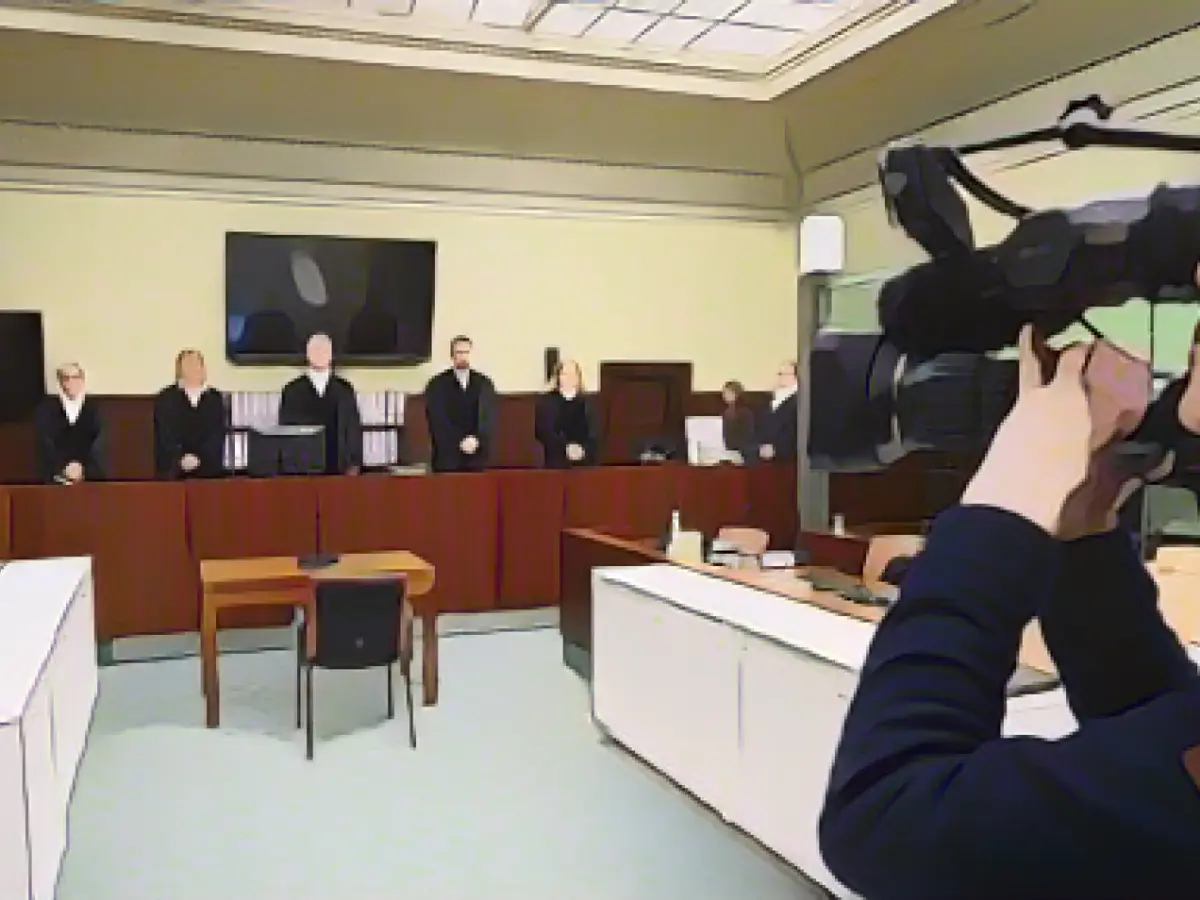Suspicion of Russian espionage - Defense lawyer in BND trial raises accusations
In the trial against a BND employee on suspicion of spying on Russia, the defense has expressed doubts about the investigators and the proceedings. In addition, his client is being held in "torture-like solitary confinement", said defense lawyer Johannes Eisenberg on Wednesday before the Berlin Court of Appeal. The court and the federal prosecutor's office rejected the accusations.
Eisenberg is representing the 53-year-old employee of the Federal Intelligence Service Carsten L., who is accused together with the 32-year-old businessman Arthur E.. They are alleged to have passed on secret information to the Russian secret service FSB after the start of the war in Ukraine in 2022 and received hundreds of thousands of euros in agent pay in return. The federal prosecutor's office accuses them of treason in a particularly serious case. The two Germans are in custody.
Because they are said to have exchanged information in a letter forwarded via fellow prisoners, the court had tightened the prison conditions. Carsten L. is now "alone and isolated" seven days a week, 24 hours a day, said Eisenberg. That was tantamount to torture. The sixth criminal division rejected this in a ruling. The restrictions were necessary.
Lawyer speaks of "file confusion"
Eisenberg also said that the Federal Public Prosecutor's Office was continuing to investigate without the knowledge of those involved in the trial and was withholding information. File numbers had been falsified. "So we are dealing with forgers," said Eisenberg. Federal prosecutor Lars Malskies rejected this. Lawyer Eisenberg also complained that the trial files were arranged in such a confusing manner that the work of the defense lawyers was made more difficult. It was a "presumably deliberately botched file arrangement", a "confusion of files".
This day of the trial was actually about the conspiratorially exchanged letter - the so-called Kassiber. In it, the accused L. is said to have urged the co-defendant E. to retract his statements. The court heard two employees of the Moabit remand prison explain how the letter was discovered and attributed to the accused. The hearing of evidence is to continue on Thursday.
Read also:
- Year of climate records: extreme is the new normal
- Precautionary arrests show Islamist terror threat
- UN vote urges Israel to ceasefire
- SPD rules out budget resolution before the end of the year
- The defense lawyer, Johannes Eisenberg, raised concerns about the investigation and proceedings in the trial of a BND employee accused of espionage on behalf of Russia in Germany.
- Eisenberg alleged that his client, Carsten L., a 53-year-old BND employee, was being held in solitary confinement akin to torture, a claim rejected by the court and the federal prosecutor's office.
- The two Germans, Carsten L. and Arthur E., a 32-year-old businessman, are accused of passing on secret information to the Russian secret service FSB after the start of the war in Ukraine in 2022, in exchange for hundreds of thousands of euros.
- Lawyer Eisenberg accused the federal prosecutor's office of continuing to investigate without informing those involved in the trial and of withholding information, alleging that file numbers had been falsified.
- Federal prosecutor Lars Malskies rejected Eisenberg's accusations, while the lawyer also complained about the confusing arrangement of trial files, which made the work of defense lawyers more difficult.
- The trial on Thursday was focused on the conspiratorially exchanged letter between the accused, with the court hearing testimony from employees of the Moabit remand prison regarding its discovery and attribution.
- In Germany, suspicion of Russian espionage has led to the trial of a BND employee, raising concerns about the investigation and the treatment of the accused, as well as allegations of file confusion and withholding of information by the federal prosecutor's office.
- The sensational trial in Berlin has brought to light allegations of espionage by a BND employee in collaboration with a businessman, with accusations of passing on secrets to the Russian FSB and receiving agent pay in return.
Source: www.stern.de








